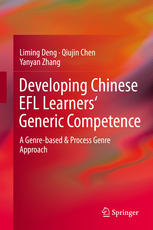

Most ebook files are in PDF format, so you can easily read them using various software such as Foxit Reader or directly on the Google Chrome browser.
Some ebook files are released by publishers in other formats such as .awz, .mobi, .epub, .fb2, etc. You may need to install specific software to read these formats on mobile/PC, such as Calibre.
Please read the tutorial at this link: https://ebookbell.com/faq
We offer FREE conversion to the popular formats you request; however, this may take some time. Therefore, right after payment, please email us, and we will try to provide the service as quickly as possible.
For some exceptional file formats or broken links (if any), please refrain from opening any disputes. Instead, email us first, and we will try to assist within a maximum of 6 hours.
EbookBell Team

0.0
0 reviewsThis work investigates the development of English as a Foreign Language (EFL) learners’ generic competence in reading, writing and translation within the particular Chinese classroom context. It provides a new perspective for the current teaching and research in reading, writing, translation within the EFL contexts and offers an insightful framework for pedagogical applications in language learning and teaching. Its findings will be extremely valuable not only in local situations, but also more generally in a wider regional and global context as well.
The book employs a series of research tools, including pre-research and post-research questionnaires, pre-test and post-test of reading/writing/translation, multi-faceted writing portfolios (including reflection reports), textual analysis and in-depth interviews. It involves 209 participants from a primary university in Wuhan, among whom 171 are undergraduates and 38 are postgraduates. And it draws on the analysis of such varied multi-sourced data both qualitatively and quantitatively.
Genre-based teaching is playing a critical role in initiating EFL learners into the discourse community of the target language. Developing EFL learners’ generic competence is viewed as the ultimate goal in the process of teaching and learning. This monograph effectively demonstrates that like genre-based English for Specific Purposes (ESP) pedagogies, it is also possible to take advantage of already acquired genre knowledge for use in EFL learning contexts. It offers an impressive view of the direction in which genre-based applications are likely to take in the coming years.